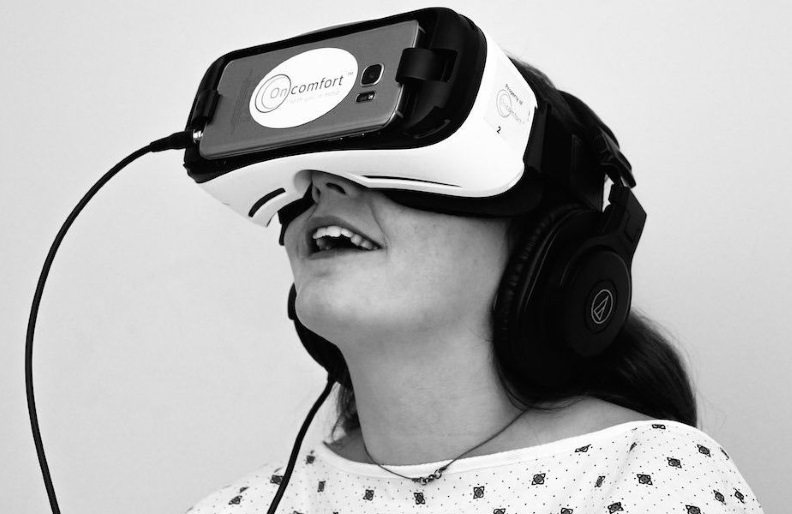Cancer vs. VR
OnComfort’s goal is to help patients cope with the stress and pain associated with cancer treatment, but the startup isn’t working on a new medication or traditional therapy. They have their eyes set on virtual reality (VR).
“Oncomfort leverages virtual reality technology to help train patients in stress management techniques, give them easy-to-understand information, and help them feel more in control, calm, and comfortable,” CEO Diane Jooris explained in a news release after the company won the C3 Prize.
So far, OnComfort has created five different VR applications in pursuit of this goal.
Aqua is an immersive experience that places the patient in an undersea environment to induce relaxation, while Amo uses clinical hypnosis techniques, deep breathing, guided imagery, and relaxation to ease pain and anxiety.
Three of the company’s apps — Kimo, Spacio, and Stella — have been designed specifically for the benefit of pediatric patients. These can be used to distract them during short procedures or help them prepare for MRIs, radiotherapy, and chemotherapy.
VR Wins
According to OnComfort’s website, their apps have been tested by 20 doctors on more than 1,500 patients in the U.S. and Europe. Jooris told Forbes that tests have so far produced positive results — breast cancer patients who used OnComfort at least 15 minutes before their scheduled procedures saw a 50 percent reduction in anxiety, an 80 percent reduction in the use of pain medication, and a 40 percent decrease in overall pain.
Numbers like these are likely to help the company as they seek out more support for their technology. Getting regulatory approval to use VR — or any new treatment or device — for medical purposes isn’t easy, and the process can be a long, expensive one with unexpected setbacks.
Virtual reality has already proven capable of doing much good in the healthcare industry, helping patients cope with autism, paranoia, labor pains, PTSD, and many other conditions and ailments.
Last year, an estimated 1.6 million people in the U.S. were diagnosed with a form of cancer, and if games like Aqua and Spacio can help ease the stress and pain of even a fraction of those people, OnComfort’s technology is worth pursuing.
This article was originally published by Futurism.

